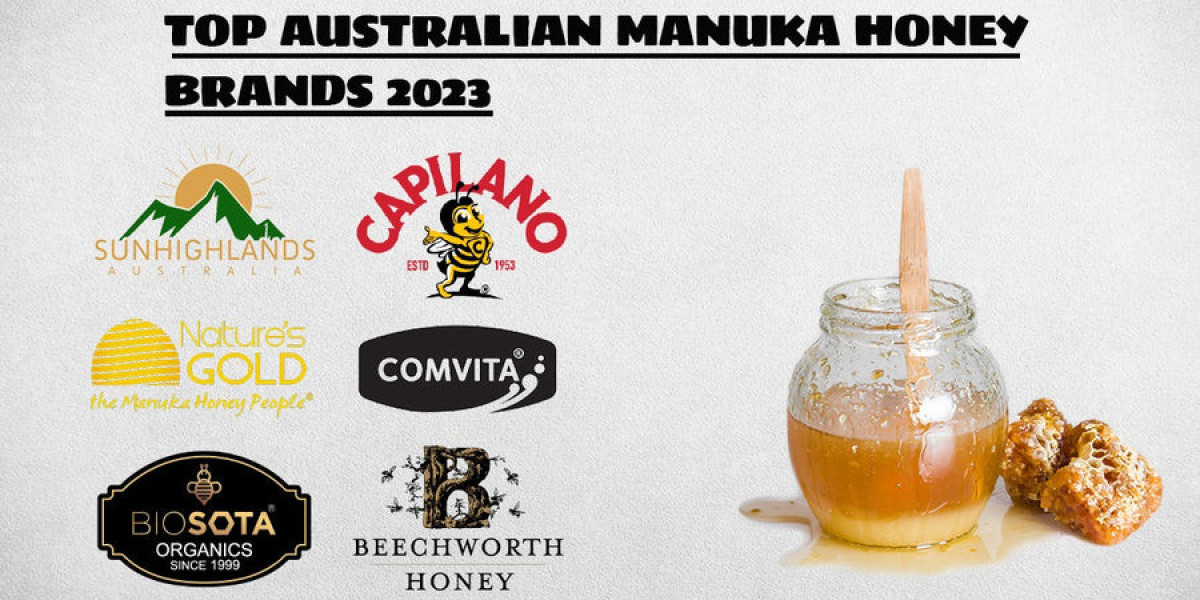When it comes to choosing the perfect sweetener, natural options are taking center stage. Unlike refined sugar, natural sweeteners bring a wealth of health benefits and unique flavors to the table. Among these, honey holds a special place due to its versatility and nutritional value. For those in Sydney, manuka honey Sydney has become a favorite choice, celebrated for its distinct taste and health-boosting properties. However, there are plenty of other natural sweeteners worth exploring, each with its own advantages.
The Rise of Natural Sweeteners
Natural sweeteners have been used for centuries across various cultures. From honey and maple syrup to coconut sugar and date syrup, these alternatives to refined sugar offer not just sweetness but also a range of nutrients. They’re less processed, which means they retain their natural vitamins, minerals, and antioxidants. This makes them a healthier choice for people looking to reduce their sugar intake without compromising on flavor.
The increasing awareness of the harmful effects of refined sugar—such as its link to obesity, diabetes, and heart disease—has fueled the demand for natural sweeteners. People are now seeking out alternatives that not only satisfy their sweet tooth but also provide added health benefits. Let’s take a closer look at some of the best natural sweeteners you can find in your neighborhood.
Local Honey
Honey is undoubtedly one of the most popular natural sweeteners. Its rich flavor, combined with its antibacterial and anti-inflammatory properties, makes it a staple in many households. Local honey, in particular, offers the added benefit of supporting your community’s beekeepers and ecosystems.
Each jar of local honey carries the distinct taste of the region it comes from, thanks to the flowers and plants that bees pollinate. This not only enhances its flavor but also makes it a potential remedy for seasonal allergies. By consuming honey produced in your area, you might be ingesting small amounts of local pollen, which could help your body build resistance to allergens.
Maple Syrup
Maple syrup is another fantastic natural sweetener, especially for those who love a robust, earthy flavor. Made by boiling down the sap of maple trees, this sweetener is rich in antioxidants and minerals like manganese and zinc. It’s an excellent choice for drizzling over pancakes, waffles, or oatmeal. When buying maple syrup, look for 100% pure varieties without any added sugars or artificial ingredients.
Coconut Sugar
Derived from the sap of coconut palm trees, coconut sugar is a low-glycemic sweetener that’s packed with nutrients like potassium, magnesium, and zinc. Its caramel-like flavor makes it a great substitute for brown sugar in baking. Coconut sugar is minimally processed, retaining its natural vitamins and minerals, making it a healthier option compared to refined white sugar.
Agave Syrup
Agave syrup, extracted from the agave plant, is a popular sweetener due to its low glycemic index. It’s sweeter than sugar, so you need less of it to achieve the same level of sweetness. However, it’s worth noting that agave syrup is high in fructose, so it should be consumed in moderation. Its mild flavor makes it ideal for beverages like tea, coffee, and smoothies.
Date Syrup
Date syrup is a natural sweetener made by blending dates with water and then straining the mixture. Rich in fiber, vitamins, and minerals, this sweetener is perfect for adding a touch of natural sweetness to baked goods, sauces, and dressings. Its thick consistency and caramel-like flavor make it a versatile ingredient in both sweet and savory recipes.
The Unique Benefits of Manuka Honey
While all types of honey offer health benefits, manuka honey stands out for its exceptional antibacterial properties. Native to New Zealand and parts of Australia, manuka honey is derived from the nectar of the manuka tree. Its high levels of methylglyoxal (MGO) give it its potent medicinal qualities, making it a sought-after natural remedy for sore throats, wounds, and digestive issues.
In the middle of exploring natural sweeteners, honey manuka emerges as a premium option, offering not just sweetness but also therapeutic value. Its rich, earthy flavor and thick texture make it a favorite for spreading on toast, drizzling over yogurt, or simply enjoying by the spoonful.
How to Choose the Right Sweetener for Your Needs
With so many natural sweeteners available, how do you decide which one is right for you? Here are some factors to consider:
Flavor Profile: Each sweetener has its own unique taste. For example, maple syrup has a robust flavor, while agave syrup is milder. Consider what will complement your recipes best.
Nutritional Content: Some sweeteners, like honey and coconut sugar, offer more nutrients than others. If you’re looking for added health benefits, opt for nutrient-rich options.
Glycemic Index: If you’re managing blood sugar levels, choose sweeteners with a low glycemic index, such as agave syrup or coconut sugar.
Purpose: Think about how you’ll use the sweetener. For baking, coconut sugar or date syrup may work best, while honey or maple syrup is ideal for drizzling over food.
Supporting Local Producers
One of the best things about choosing natural sweeteners is the opportunity to support local producers. Whether it’s honey from a nearby beekeeper or maple syrup from a regional farm, buying locally not only ensures freshness but also contributes to the sustainability of small businesses and the environment.
When you purchase local honey, for instance, you’re helping to sustain bee populations, which are vital for pollinating crops and maintaining biodiversity. Similarly, choosing locally sourced maple syrup or coconut sugar reduces the carbon footprint associated with transportation and storage.
Incorporating Natural Sweeteners Into Your Diet
Adding natural sweeteners to your meals and snacks is easier than you might think. Here are some simple ideas to get you started:
Breakfast: Drizzle honey or maple syrup over pancakes, waffles, or oatmeal for a naturally sweet start to your day.
Beverages: Stir agave syrup or honey into your tea, coffee, or smoothies for a touch of sweetness.
Baking: Substitute refined sugar with coconut sugar or date syrup in your favorite recipes for cookies, cakes, and muffins.
Cooking: Use honey or maple syrup as a glaze for roasted vegetables or meats, or incorporate them into salad dressings and marinades.
Snacks: Pair honey or date syrup with fresh fruit, yogurt, or nuts for a quick and healthy treat.
Conclusion
Natural sweeteners are a delicious and nutritious alternative to refined sugar, offering a range of health benefits and unique flavors. From the robust taste of maple syrup to the therapeutic properties of manuka honey, there’s a natural sweetener to suit every palate and dietary need.
By exploring your neighborhood’s offerings, such as local honey or specialty products like manuka honey, you can support local producers and enjoy the freshest, highest-quality options available. Whether you’re using them in your morning coffee, baked goods, or savory dishes, natural sweeteners provide a healthier and more sustainable way to satisfy your sweet cravings. So why not start incorporating them into your diet today?






